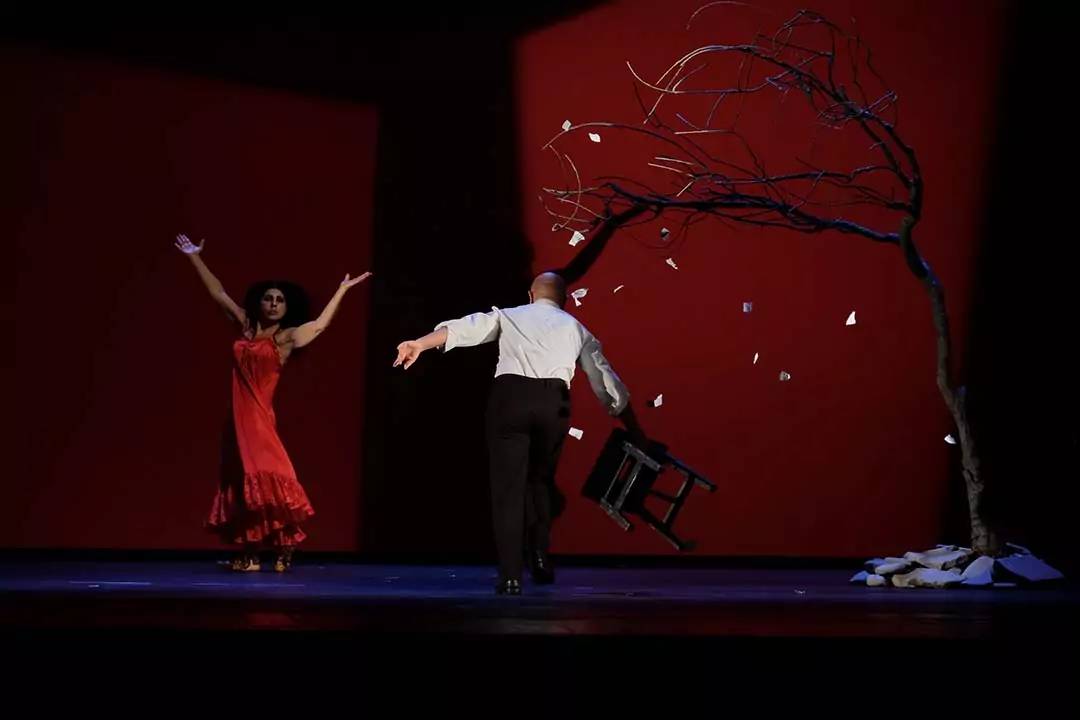Amore
Teatro DonizettiThe project was born out of the meeting and friendship between Pippo Delbono and Italian theater producer Renzo Barsotti, who has been active in Portugal for years, and their desire to make a show together about Portugal. From here begins the research on "love" as a feeling, a state of the soul. A real gear in the human organism, which selects, moves, shatters and recomposes everything we see, everything we feel, everything we desire. Love is a musical and lyrical journey through an external geography-as well as Portugal, Angola, Cape Verde-and an internal one, that of the strings of the soul that vibrate at the slightest blow of life. The notes are the melancholic ones of fado, which explode into energetic surges through the voices of its singers, wide open to reach every corner of the room; the rhythm that now of a parade, now of a tableau vivant, now of a slow procession; the image is a picture that changes in colors, warms and cools. And there is, then, the poetic word, returned by the warm register of the Ligurian artist through his usual, hypnotic, psalmodic playing at the microphone. The words are those of Carlos Drummond de Andrade, Eugénio De Andrade, Daniel Damásio Ascensão Filipe, Sophia de Mello Breyner Andresen, Jacques Prévert, Rainer Maria Rilke and Florbela Espanca. "This show," says Pippo Delbono, "presents a twofold vision of love. On the one hand - and it is the texts that take voice - we set out, all of us, in search of that love, trying to escape the fear that assails us. On this journey we try to avoid it, this love, even though we constantly recognize its urgency; I seek it, but I also want it, and that is what is so frightening. But the journey - made of music, voices, images - then succeeds, perhaps, in leading us toward a reconciliation, a moment of peace in which that love can manifest itself beyond any single fear." Holding together an emotional montage that is never quite pacified is a scenic grammar that alternates between fullness and emptiness, song and music, living voice and silence, in search of a dreamlike and elegiac representation of the cruel undertow of detachment and reunion. The protagonist is absence, it is distance, it is nostalgia, a mapping of emotions that delves into the soul of the author, his performers and the spectator himself, who is called upon to search always with his eyes for what is missing and which, inexorably, delays manifesting itself. Love is meant to be an attempt to share a fleeting encounter: love is "a bird of prey" that grabs and carries away and, in doing so, presents itself as a totally human quality. The different languages that embrace in the sound texture are an expression of this land, Portugal, that welcomes and leaves traces; the poetic momentum reminds us what form of respect we should always offer to those motions of the soul that are otherwise always

